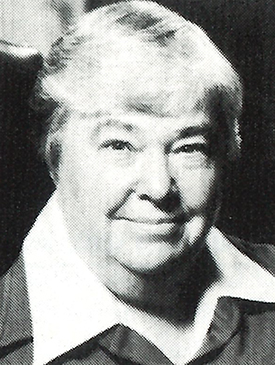Dixy Lee Ray, 1914-1994
 Controversial, outspoken, iconoclastic, but also an esteemed teacher and scientist, former governor and UW Zoology Professor Dixy Lee Ray died Jan. 2.
Controversial, outspoken, iconoclastic, but also an esteemed teacher and scientist, former governor and UW Zoology Professor Dixy Lee Ray died Jan. 2.
Best known for her four tumultuous years as Washington’s governor, from 1977 to 1981, Ray was also the first woman to chair the Atomic Energy Commission and the director of Seattle’s Pacific Science Center for nine years.
Former UW students remember her best as a superb zoology professor who specialized in marine invertebrate animals. After earning her Ph.D. from Stanford, Ray joined the UW faculty in 1945 and helped build introductory and invertebrate courses at the UW. One of her courses, Zoology 330, took budding scientists on weekend field trips throughout Puget Sound. Her course on zoology and human ecology—taught in the ’60s and ’70s—constantly was filled to capacity.
In a 1976 interview with the Daily, one former student, Mike Strigen, said, “She was one of the best lecturers I’ve ever had.” Students and faculty recalled how Ray would personally help out students in financial need. “People accuse her of being cold-blooded,” former Zoology Chair Arthur Martin told the Daily “Actually she is a very warm and thoughtful individual.”
In 1963 Ray became a part-time professor so she could run the Pacific Science Center.
Ray continued to teach a zoology course Autumn Quarter, but went on leave in 1972, when President Richard Nixon appointed her to the Atomic Energy Commission. A year later Nixon named her “chairman” of the agency. As the first woman to head the commission, Ray was in the D.C. spotlight, especially when she decided to live in a mobile home in Maryland and bring her poodle “Jacques” and her Scottish deerhound “Ghillie” to work every clay.
After three and a half years in Washington, D.C., she returned to the other Washington and began her campaign for governor. To avoid any conflict of interest, she resigned from the UW faculty in July 1976. That fall, she defeated Seattle Mayor Wes Uhlman in the primary and King County Executive John Spellman in the general election to become Washington’s only woman governor.
Her four years were controversial. One major accomplishment was helping the state take over full funding of K-12 education after a court order in 1977. Some of her more controversial moves included cutting welfare benefits and advocating the easing of some environmental restrictions.
Her blunt talk about the environment, including her defense of nuclear power and the use of oil “supertankers” in Puget Sound, brought stinging protests. “It’s a funny thing about these so-called environmentalists,” she once told the Seattle Times. “They make statements and the statements get printed and no one ever checks to see if they are correct. No one ever asked me if they were true, and many of the things they said about me were out-and-out falsehoods.”
After her defeat in the 1981 Democratic primary, Ray retreated to her family home on Fox Island and co-authored two books attacking the environmental movement, Trashing the Planet and Environmental Overkill. She died of bronchial complications at her home at age 79.